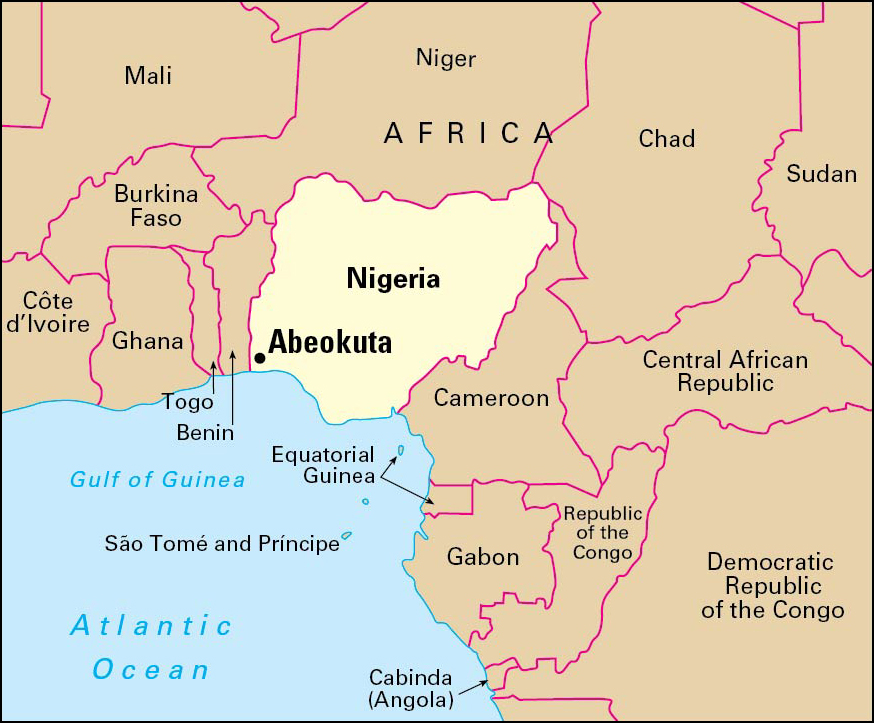Abeokuta is a city in southwestern Nigeria. The city lies on the Ogun River north of Lagos, Nigeria’s largest city. Abeokuta is an important administrative, agricultural, and commercial center. It is the capital of Ogun state. Abeokuta is home to several small industries and the Federal University of Agriculture.

Abeokuta is an Egba word meaning under the rock. Egba people belong to the Yoruba ethnic group, the predominant group in the region. The town was founded around 1830, as people sought safety from local conflicts in the area’s rocky landscape. In the 1840’s, Christian missionaries arrived from the United Kingdom. In the 1860’s, expansionist British policies led the Yoruba people to force out most European missionaries and traders. Yoruba rivalries led to warfare with the neighboring city of Ibadan from 1877 to 1893.
From 1893 to 1914, Abeokuta served as the capital for the largely independent Egba United Government. The city was then incorporated into the British colony—and later, independent nation—of Nigeria. Abeokuta’s most famous landmark is a large granite outcrop called Olumo Rock, which is an important local shrine. The bustling Itoku Market sprawls beneath Olumo Rock. Many shops sell adire, a popular Yoruba fabric dyed with indigo in many patterns. Most of the city’s residents are Yoruba Christians and Muslims.
